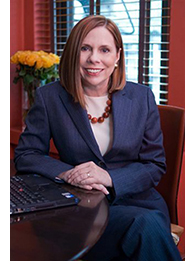 People call or e-mail me on a regular basis saying they are thinking about hiring an executive coach but they’re not sure how to determine who’s good, who isn’t, and which person would be the best fit for their coaching needs.
People call or e-mail me on a regular basis saying they are thinking about hiring an executive coach but they’re not sure how to determine who’s good, who isn’t, and which person would be the best fit for their coaching needs.
I’ve worked exclusively as an executive coach for almost 15 years. I think it’s quite easy to narrow down your choices to a select few coaches. Then, there is a bit more work to be done. It’s all possible and really quite simple if you follow a few suggestions.
Basic Criteria for Choosing an Executive Coach
Hire a person who has been coaching at least three or more years. Don’t be someone’s practice session (unless you are helping out a friend).
Your coach should have some form of coach training, either with a coaching training program or through a college or university. Ideally, they also should have an advanced degree in a relevant subject.
More Tips for Choosing an Executive Coach
Avoid therapist and HR professionals who think they have the qualifications, despite limited or no training, and really are pretending only to be coaching or supplementing their failing practices.
Life coaches are not qualified to do executive coaching. Most executive coaches don’t and shouldn’t offer life coaching. If your potential coach claims to do both they probably don’t do either well.
That said, when it comes to coaches, I believe an executive coach needs to have been employed at a senior level in a corporation, organization, or worked as a successful entrepreneur for a good amount of time. They don’t teach the day-to-day of the workplace in school. You have to have been there and done that to really have the insights and relatable examples. Ideally, the person should have had direct line responsibilities as well as bottom line accountability, that is, the sort of position where a significant number of people reported to them in a variety of situations. Only this kind of experience can help them understand just what might be going on and what you are dealing with.
I don’t necessarily think executive coaches need to have worked in your specific industry but they have to have coached in a variety of disciplines. I’ve coached lawyers, scientists, investment bankers, PR professionals, marketers, not-for-profit leaders, and many other types. In the end, they came to coaching with more similarities than differences. I assume they know the technical side of their job; it is the rest they are struggling with.
Be wary of people with set models or formulas, or a “one-size-fits all“ approach. They never work for senior level people. You only want a customized coaching experience.
Don’t hire a coach just like you. Speak to people of the other gender, ethnicity, age, and temperament. They bring another perspective into the room and are often a good person with whom to bounce around new ideas or challenges.
You get what you pay for. It’s true in life and true in coaching. If the price seems too good to be true, it is. You wouldn’t go to the cheapest dentist, lawyer, or doctor in town, why would you ask for career advice from someone who is not top of the line. On the other hand, make sure the person has the experience to be worth his or her fee.
A referral by a friend or colleague is often a good first start. Any coach should be ready and willing to provide you with an assortment of references.
Before hiring, read the coach’s website. What does it really say? Is there proof of competence rather than just self-promotion? Does the person have a significant number and variety of testimonials? What are his or her credentials, education, and work experience? Do you like and understand the individual’s tone, perspective, and philosophy?
Remember, some of the best marketers are the most successful coaches but not necessarily the best coaches. Too much flash should be a warning sign as to where their energies are focused.
A good coach provides you with a professional environment in which you can work together — quiet, private and comfortable are basics.
You should have options of his or her office, your office, Skype, or phone.
Expect to make a commitment to coaching. Never go session to session.
You should be treated professionally from the start — called back quickly, spoken with as an adult, as a professional, pressure-free, and encouraged but not intimidated.
Once you have narrowed your choices from websites, make some phone calls. I suggest you call at least three executive coaches. It should be a two-way conversation, with you doing most of the talking and asking most of the questions. You want answers and to get a feeling of being heard and that there is a match and fit. If the coaching engagement is going to be face-to-face, you’ll probably want to meet the coach in the place where you will have your coaching sessions. Check your thoughts and feelings regularly. Your gut will tell you if you feel comfortable and confident with the coach. Ask about fees, payment schedule, level of commitments, and exit clauses after checking for competency and availability.
Understand this is a business transaction and you are the valued customer. Behave in a manner as you would with any other professional activity and the executive coaching engagement will go smoothly and effectively.
Choosing an executive coach is an important step. You will have many choices and options. Following a few simple steps can make the search easier and successful.
Leave a Reply